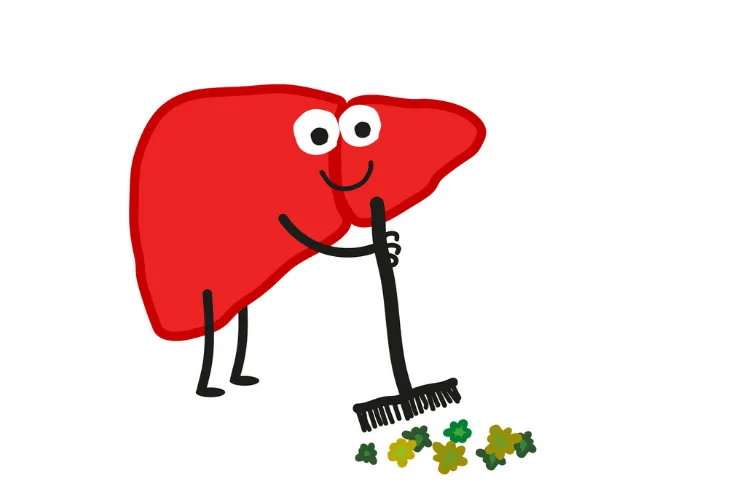If you’ve ever spent any time researching supplements, or even walked by a health food specialty store, then it’s safe to assume you’ve already crossed paths with fish oil supplements. They are popular, sure. But fish oil supplements are popular because they accomplish so many good things for so many people around the world.
Today, we’re going to spend some time unearthing the science behind a few of those good things. You may not rush out to the supplement store immediately following this article, but we hope that you leave here with a better understanding of the incredible health benefits of this incredibly popular supplement.
What Is Fish Oil?
Not all fish are created equal. At least, not when it comes to their fish oil content. When sourcing the ingredients for fish oil supplements, supplement manufacturers require mackerel, herring, tuna, and salmon.
To enjoy the incredible health benefits of fish oil, you’ll need to consume more of those fish or purchase a bottle of supplements.
Why Take Fish Oil?
But why take fish oil at all? Fish oil is a rich source of omega-3 fatty acids, which are in turn incredibly beneficial to the human body. Further to that point, the human body doesn’t produce many of its own omega-3 fatty acids, which makes supplementation that much more important.
So, what do you stand to gain by adding fish oil to your grocery list? Glad you asked.
Fights Depression and Anxiety
Anxiety disorders are the most common mental illnesses in the U.S. Roughly 40-million American adults, or roughly 18-percent of the entire adult population, suffer from anxiety every single day. Depression too is as common as it is serious. It’s the leading cause of disability in the U.S. for those aged 15 to 44.
Enter fish oil. Nobody is claiming that fish oil can cure anxiety and depression. But studies have discovered that those who take omega-3s are less likely to be depressed. There’s also documented evidence that those suffering from anxiety and depression can lessen their symptoms with omega-3 supplementation.
Supports Heart Health
Heart disease is a sweeping epidemic that’s hurting American families too. Dietary conditions, genetics, lifestyle choices, and poverty all contribute to this growing problem. So, it’s always nice to hear about cheap, effective, and widely available ways to fight against it.
Fish oil is linked to a variety of positive heart health outcomes. It can increase good cholesterol levels while also reducing the bad stuff. It helps reduce blood pressure. It may prevent arterial plaques from hardening, and it may even reduce the risk of fatal arrhythmia events. And hey, it’s ok if you don’t understand the lingo. The main takeaway is that fish oil is very good for your heart.
Improves Eye Health
A structural component of omega-3 fatty acids, DHA is also a major structural component of the retina in your eye. Not getting enough DHA can negatively impact your vision, but getting enough can reduce your risk of macular degeneration.
Reducing your risk of macular degeneration becomes particularly important as you age. As many studies as there are out there, it’s important to note that the research is still ongoing. Omega-3s may turn out to be a magic bullet for your overall eye health, but until science finds conclusive evidence, it’s still smart to eat healthily and lean on the advice of your optometrist in tandem with fish oil supplementation.
Fights Inflammation
In case you haven’t heard, long-term inflammation is a contributing factor in almost every chronic Western illness. Heart disease, cancer, arthritis… it’s linked to them all. But, thanks to the omega-3s swimming around in that fish oil capsule of yours, you can now fight back.
Omega-3 supplementation has been proven to reduce inflammation time and time again. They can even significantly reduce the symptoms of joint pain and stiffness.
Reduces Fat in Your Liver
A fatty liver is exactly what it sounds like. It’s a liver that’s characterized by the buildup of fat cells in the liver. It most often happens as a result of excessive alcohol use, and prescription drugs, but non-alcoholic fatty liver disease is common too.
Gratefully, fish oil has been used and has seen positive results, when used as a treatment for non-alcoholic fatty liver disease. Fish oil can improve inflammation and liver function, which may even help reduce the amount of fat in your liver.
Great for Your Skin
As we mentioned earlier, DHA plays a central role in eyesight. But it’s also just as important for your skin. More specifically, it contributes to healthier cell membranes, which can result in soft, supple, and wrinkle-free skin.
EPA is abundant in fish oil and helps you glow too. EPA helps your body manage the oil production and hydration of your skin, reduces premature aging, and even reduces your risk of acne.
May Support Pregnancy
Omega-3s play an important role in the early growth and development of a child. Healthline says it’s important for expecting mothers to get enough omega-3s not only during pregnancy but while breastfeeding too.
Some studies suggest fish oil supplements in pregnant and breastfeeding mothers may help improve hand-eye coordination, visual development, and may reduce the risk of allergies in infants. Look for and discuss with your provider on how much EPA and DHA you will need.
May Prevent Mental Decline
As we grow older, it’s normal to experience age-related cognitive decline which is why it’s important to take care of your brain health at all stages in your life. Some studies show that older adults who eat more fish often experience a slower decline in brain function.
Another small study showed that fish oil may improve memory in healthy seniors. While more research still needs to be done, it may be worth it to add fish oil to your diet, especially if you want to support your brain health. That said, as always make sure you speak with your doctor first to ensure fish supplements are safe for you.
The Takeaway
If you are looking to join the millions of Americans that already take this stuff daily, you should probably know how much to take.
The goal is to hit 1,100-milligrams (mg) of omega-3 for women and 1,600-mg for men. It’s important to note that omega-3s are present in the food that you eat too, so you’ll want to factor that in when considering supplementation. You’ll want to be sure to read the labels, as no two fish oil supplements are created equally.














